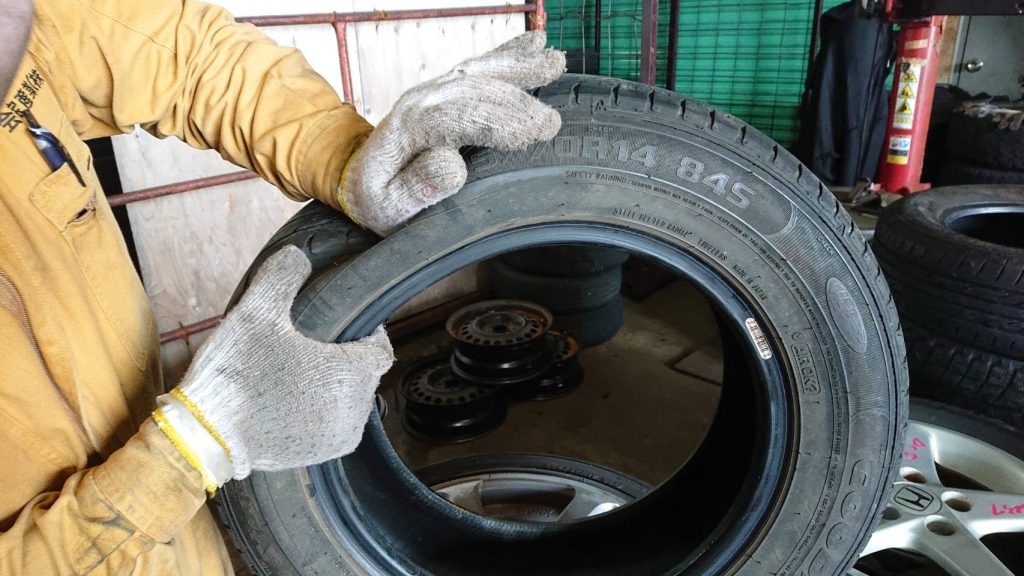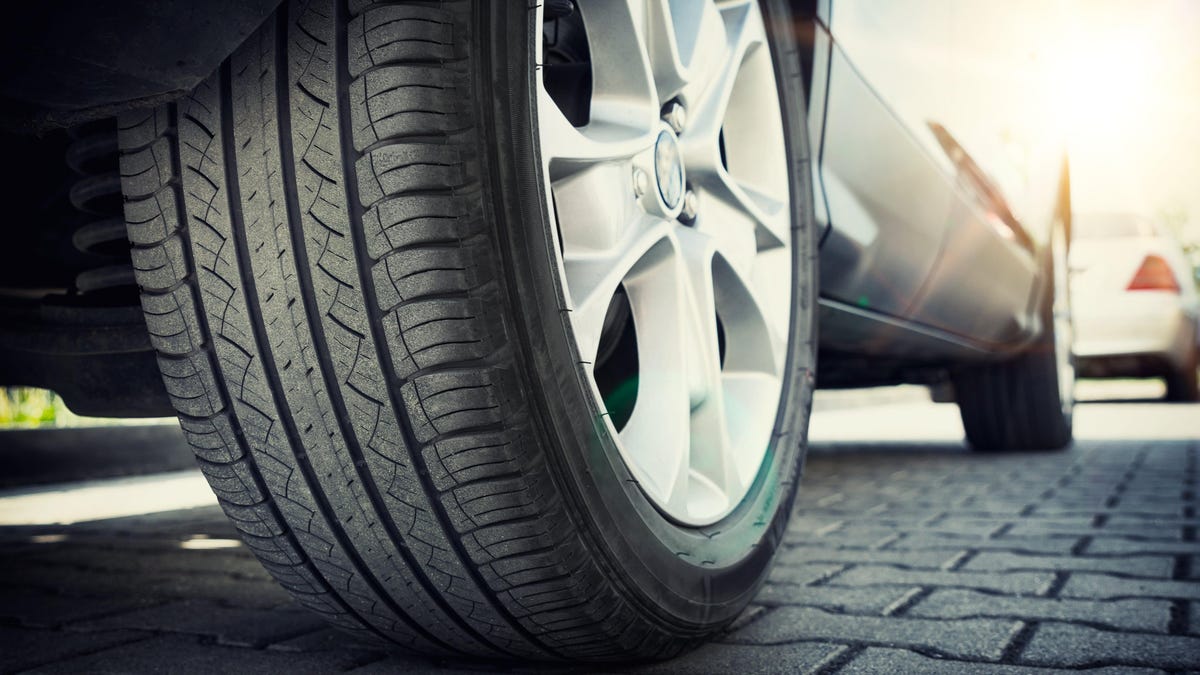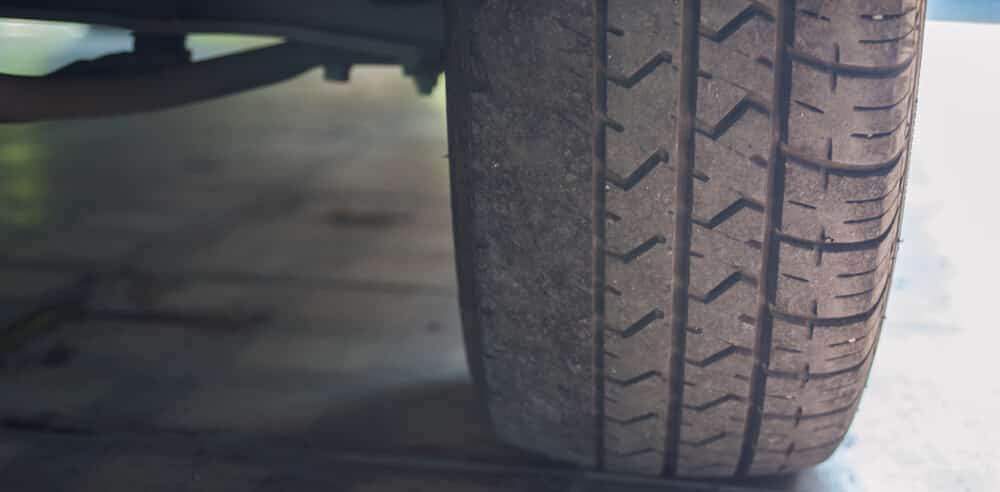The Drawbacks | Cons of Buying Used Tires
Get to know potential drawbacks of going for used tires. Make an informed decision.

Whenever it comes to buying tires, used ones often catch the attention due to their budget-friendly nature. However, the disadvantages of used tires are also worth considering before taking the dive into the second-hand market. To truly understand these drawbacks and make an informed decision, let's delve deep into the cons of buying used tires.
The Real Downside of Used Tires
While they may hold a financial appeal, used tires come with their share of trouble. From their unknown past to hidden damage, they can potentially pose risks that compromise safety and result in unforeseen costs.
Table of Contents
- The Hidden History of Used Tires
- The Potential for Hidden Damage
- Reduced Life Expectancy
- Potential Risk to Safety
- Possibility of Extra Costs
- Compromised Performance
- Disadvantages of Used Tires in Specific Conditions
- Using Caution When Buying Used Tires
The Hidden History of Used Tires
One could often feel lured by the attractive price-tags of used tires, but there's a catch. Not knowing the history, wear, and maintenance conditions of these tires can be an overwhelming disadvantage. For all you know, those tires might have borne the brunt of rough driving or even an accident, which has compromised their quality.
Uncertain Past
The mysterious past of a used tire is a latent risk. Drastic overloading, frequent curb impacts, sharp and rapid turns - these could be a part of their unvoiced adventures. Such burdensome episodes in their past can deteriorate performance and safety.
The Potential for Hidden Damage

It's quite challenging, even for an expert, to visually detect all the possible defects in used tires. Damages like internal cuts or punctures, sidewall irregularities, and tread separation might be well concealed from view.
- Internal Damage: An improperly repaired puncture can cause an internal tear that morphs into dangerous damage over time.
- Sidewall Issues: Due to exposure to harsh weather conditions and wear, the sidewall might sport some unapparent damages.
- Tread Separation: Overheating due to running at a high-speed or an internal defect can cause tread separation, which can be a futile find on a visual inspection.
Reduced Life Expectancy
Unlike new tires that promise a fresh lease of life, used tires tend to have a shorter lifespan. You are essentially buying someone else's wear, leaving you with tires that might not serve as long or as well. Overlooking this aspect of used tires can lead to frequent replacements, causing a dip in your savings.
Mileage Matters
The mileage on used tires often offers a stark reminder of their reduced life expectancy. This is a digit you won't find on the tire, making this another invisible con of used tires. What's worse, it's not just about the remaining tread depth but the age of the tire that poses potential risk. Older tires, even with promising tread depth, can pose a risk due to rubber degradation.
Potential Risk to Safety

Would you compromise your safety for the sake of going light on your wallet? Most certainly not. However, that's what buying a used tire with an uncertain history might mean. Lower traction, vulnerability to blowouts, and limited grip on wet surfaces - these are just a few safety issues you could invite with used tires.
Safety Isn't Guaranteed
A safer drive doesn't come with the purchase of used tires. Thicker tread does not always imply a safer ride. Their history might hold an unpleasant story of excessive heat exposure or improper storage, which can lead to a hardening of rubber and therefore result in compromised safety.
Hopefully, this half of the article has given you a good start on understanding the multiple disadvantages of used tires. Although they might be kind to your wallet, the drawbacks can prove to be a heavy cost in the long run.
Possibility of Extra Costs
While the initial purchase might seem significantly cheaper, the real cost of used tires may eventually appear. Additional costs in repairs, replacements, and maintenance crop up commonly with used tires, chipping away at the initial savings made.
Besides the financial aspect, there's also the cost of time and peace of mind spent on frequent visits to the repair shop. It's worth asking yourself, is it worth the potential inconvenience and the toll on your peace of mind?
The Hidden Costs
The following are some of the hidden costs that might come with buying used tires:
- Installation Costs: Many used tire sellers do not include installation in the purchase price.
- Frequent Replacements: Due to their lower longevity, used tires may need replacing more often.
- Extra Maintenance: Ensuring that the used tire stays reliable might require regular check-ups and maintenance.
Compromised Performance
A tire's performance directly influences your driving experience. However, with used tires, the performance is not guaranteed. Whether it's braking, cornering, or stability, used tires could potentially hold an impact on all aspects of driving.
"Purchasing used tires is akin to rolling the dice on ride quality and performance," confides an industry professional. It's a gamble you might not want to take.
Disadvantages of Used Tires in Specific Conditions

The performance of used tires can falter especially in harsh climatic conditions. Their ability to grip the road in heavy rain, snow, or icy conditions could be subpar. This not only compromises your comfort on the road, but also puts your safety at risk.
Weather Factors
- Rain: The ability of older tires to disperse water and grip the road decreases, increasing the chance of hydroplaning.
- Snow: In snowy or icy road conditions, used tires might lack optimal traction, making it risky to drive.
Using Caution When Buying Used Tires
If you decide, despite the potential pitfalls, to go for used tires, exercise caution. Always buy from a reputed seller who can provide you with some guarantee of quality. Inspect the tires carefully and, where possible, take a professional with you.
It's important to remember, though, even with caution, the disadvantages of used tires are not completely avoidable. As you consider buying used tires, remember that new tires come with assured quality, warranty, and peace of mind - something that used tires might not offer.
In conclusion, 'cheap' is not always the best buy, especially when it comes to tires - the only part of our vehicle that maintains contact with the road. As a responsible vehicle owner, it's essential that we prioritize safety, comfort, and peace at every turn. Every penny saved on used tires may come at the price of compromised safety and extra maintenance. In the tire world, an informed decision is always the best way forward.
What's Your Reaction?








































































